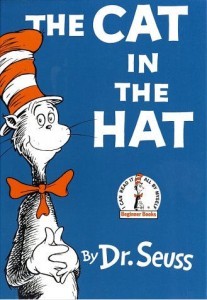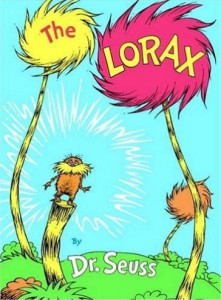I respect George R.R. Martin as a writer. He’s immensely talented. I’ve met him. He’s a nice guy. I respect the achievement that is regarded as one of the greatest fantasy series of all time. I read the first two books. I enjoyed them for what they are. But I couldn’t finish book 3. A Storm Of Swords just lost me. I have wrestled with that for a couple of weeks now and finally sorted out why.
Why would I want to read a book that deals with heroes like reality does? GRRM takes all the archetypes and knocks them off one by one. Killing any admirable heroes and leaving us with mostly unlikable scum. Oh Jon Snow and Arya and even Tyrion still have likability, despite flaws. But you know, I get this kind of depressing reality on the news daily and the internet, I don’t need it in my fiction. I read fiction to escape. I read it to hope for a better world. I read it to see possibilities, not realities that are depressing and sad or reminders of that.
Maybe I’m more thoughtful than some people. I’m painfully aware of my frailties, failures and inadequacies. My life’s quest has been to try and conquer them or at least counter them by living a life that makes a difference. From teaching to volunteering to mission work, I have sought to help and encourage others and myself by seeking to make a better world, at least in the portion that I touch. And when I write, that’s why I write old fashioned heroes where the good guys are good and admirable, despite being flawed, and the bad guys are bad. You know who you want to see win and that’s okay because it’s natural. It doesn’t have to weaken the characters to have them be people who make us want to be better people ourselves; to make us hope people, including ourselves, can rise above our depravity and lead better lives, lives of significance that make a better world.
As my friend and editor Randy Streu states it: “It’s like, somebody decided that ‘nuance’ meant that, to be a real hero meant to be so flawed and depraved that actual heroism was dead. Acts for the greater good are a biproduct of self interest.” I guess some people do probably believe that. But I don’t. I think heroism is alive. I sometimes think the media wish it wasn’t. They go after anyone with character or fame like sharks at a steak cookout, tearing them to shreds, cutting them down to size, poking and probing at every potential weakness or flaw to tear them down. Reality TV thrives on this. It’s a celebration of mediocrity and failure. It’s about taking people we admire and bringing them down a notch. That’s why it’s so wonderful when someone actually survives the reality TV feeding frenzy and comes out shining. Take Clay Aiken on the current Celebrity Apprentice or even Arsenio Hall. Arsenio lost it once, but then apologized and let it go. And he showed himself to be the class act most of his fans always hoped he was.
But Song Of Ice and Fire as well written as it is, as deep as it can be, just leaves me cold. Are people really this bad? Probably. But why are we celebrating it? Why are we putting that out there as a tale of fantasy when it’s really more a tale of sad reality? Don’t get me wrong, GRRM has a right to write what he wants. I stand up for his freedom of speech. I’m just saying that the alternative to A Song Of Ice and Fire appeals more to a lot of people and that’s not bad or wrong. I wish there were more of it.
I recently interviewed Robert Silverberg about the rerelease of the incredible Majipoor books which changed my life. The hope and excitement they inspired not only in the possibilities of what one man can do but what one writer can do have been formative in my life. Are there bad guys in that? Yes. Is the hero flawed? Yes. But there’s an underlying sense of wonder and optimism which is inspiring and moving. Lots of books used to have that. Less have it today and I wonder why. Is our nihilistic age destroying our ability to hope? My childhood memories are filled with books which so inspired me: from Winnie The Pooh to Dr. Seuss to Huckleberry Finn and Laura Ingalls Wilder. Some of these books, like Finn and Wilder dabble close to the vest with reality. It’s not that characters don’t face real problems or flaws but that they triumph and grow into better people and the overall theme is hopeful and makes you want to do the same in your life. Is that such a bad thing? Does anyone who has kids really want them reading books with the tone of A Song Of Ice And Fire to set their expectations for the world and their lives?
Again, I am not saying A Song Of Ice and Fire is bad. I am just suggesting that another type of literature has its place and its importance and is still needed and wanted by many readers today and that, perhaps, the focus on moving away from that is misplaced. Rowling’s Harry Potter books are popular for a reason. They celebrate the triumph of flawed heroes over strong forces and great odds. And the protagonistic characters are admirable and likable.
It’s funny to me that so much of Christian literature took it to the opposite extreme. There, heroes are so whitewashed and villains so tame that readers living in the real world quickly grow bored and frustrated. The books don’t engage their reality enough, rather than the opposite of perhaps engaging too much. Instead of lacking heroes, they lack realistic people. The characters are cardboard and perfect and don’t resemble anyone we know and the world is too neat with too many rounded edges and not enough jagged ones. If that makes any sense. Whereas the Bible is filled with powerful heroes who are flawed men and woman fighting to rise above their flaws and facing incredible odds. Those character types still have power and meaning for audiences today. I think that’s why so many classics continue to be reprinted again and again, like the Majipoor series. I’ll continue trying to write it, and I hope others will as well. I really hope the kids of tomorrow can find books to inspire them like I used to. And I’ll continue to seek an alternative to A Song Of Ice And Fire. Not that I refuse to read such things but that I’ll visit them sparingly. They offer me less of what I seek and need and thus don’t satisfy my cravings. The HBO version has just made me feel stronger about it as they ditch the story and important POV characters like Arya for any scene where they can show more flesh and more gritty sex, violence, etc. They emphasize even more the darkness and they’re losing their way with the story in the process.
Yes, I still believe real heroes exist and the world can be a better place if we do our best to rise above our flaws and make a difference. I still believe story telling even on film doesn’t need to be darkly discouraging and total depravity, that there can be hope in its midst. And I hope I always will. For what it’s worth…
 Bryan Thomas Schmidt is the author of the space opera novels The Worker Prince, a Barnes & Noble Book Clubs Year’s Best SF Releases of 2011 Honorable Mention, andThe Returning, the collection The North Star Serial, Part 1, and has several short stories featured in anthologies and magazines. He edited the new anthology Space Battles: Full Throttle Space Tales #6 for Flying Pen Press, headlined by Mike Resnick. His children’s book 102 More Hilarious Dinosaur Jokes For Kids from Delabarre Publishing. As a freelance editor, he’s edited a novels and nonfiction. He’s also the host of Science Fiction and Fantasy Writer’s Chat every Wednesday at 9 pm EST on Twitter, where he interviews people like Mike Resnick, AC Crispin, Kevin J. Anderson and Kristine Kathryn Rusch. A frequent contributor to Adventures In SF Publishing, Grasping For The Wind and SFSignal, he can be found online as @BryanThomasS on Twitter or via his website. Bryan is an affiliate member of the SFWA.
Bryan Thomas Schmidt is the author of the space opera novels The Worker Prince, a Barnes & Noble Book Clubs Year’s Best SF Releases of 2011 Honorable Mention, andThe Returning, the collection The North Star Serial, Part 1, and has several short stories featured in anthologies and magazines. He edited the new anthology Space Battles: Full Throttle Space Tales #6 for Flying Pen Press, headlined by Mike Resnick. His children’s book 102 More Hilarious Dinosaur Jokes For Kids from Delabarre Publishing. As a freelance editor, he’s edited a novels and nonfiction. He’s also the host of Science Fiction and Fantasy Writer’s Chat every Wednesday at 9 pm EST on Twitter, where he interviews people like Mike Resnick, AC Crispin, Kevin J. Anderson and Kristine Kathryn Rusch. A frequent contributor to Adventures In SF Publishing, Grasping For The Wind and SFSignal, he can be found online as @BryanThomasS on Twitter or via his website. Bryan is an affiliate member of the SFWA.
19 5-star & 4-star reviews THE WORKER PRINCE $4.99 Kindle http://amzn.to/pnxaNm or Nook http://bit.ly/ni9OFh $14.99 tpb http://bit.ly/qIJCkS.



